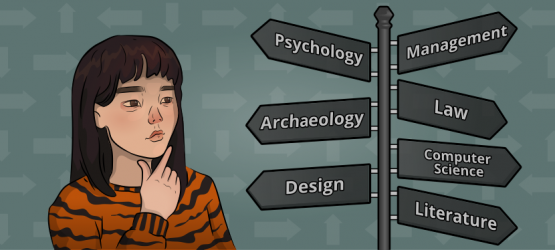How to Get Over Post College Depression

After graduation from college or high school, many students feel energized and positive. However, there are also students who face severe depressions, emotional breakdowns, and addictions. If you feel that something is wrong with you, and you are confused and lonely, then this article is for you. Our tips will help you recognize the dangerous symptoms of post-graduation depression and pull yourself through this tough period of your life.
A disclaimer: the best option would be to turn to a doctor for professional treatment.
What Are Post Grad Depression and Its Symptoms?
You have been waiting for this moment for a long time. Graduation, diploma, bachelor degree, freedom of choice and self-expression. But after caps thrown in the air, you suddenly realized that you don’t know what to do in your life and all of your plans for the future that were so bright and clear yesterday just make no sense today.
This is what depression is. A stunning feeling of loneliness and emptiness mixed with confusion and lack of energy to even leave your bed in the morning. A lot of people face crises and depressions during their lives. Psychologists claim that there are common ages when an individual is more subject to various mental disorders, for example, the “half-life crisis” or “quarter-life crisis.”
The main thing about these conditions is that many people of a certain age have similar problems with sleep, self-esteem, emotional control and finances. By the way, if you are having any problems with finances, you should find out how to manage your finances better after college.
The “quarter-life crisis” commonly occurs around the age of graduating from college. This condition might get even worse due to a stressing situation of being unemployed and confused after the graduation which can compile into a severe depression.
The main symptoms of post-college depression are:
- Being disorganized and unfocused
- Lacking motivation and energy
- Being sad or annoyed without a reason
- Feeling like you are running out of time
- Feeling miserable and worthless
- Feeling confused and frustrated
- Falling into addictions – cigarettes, alcohol, drugs
- Feeling lonely and abandoned
- Feeling like a failure
If you started to feel like you have too many options to choose from and even after getting your degree you are not sure what you want in your life and considering the option of moving back home, it’s okay – you are just getting mature. But if you can’t find the smallest thing that you enjoy and are constantly unfocused or numb, then you need to start pulling yourself out from this state.
How to Fight the Crisis?
The first step and the most essential one is to confess the fact that something is wrong with you. If you are reading this article, then you have already done it. Congratulations, your recovery journey starts right now! It’s time to focus.
Set Up Your Goals
Beating depression is not a quick process. You have to start working through slowly. Think about your dreams and your goals, make a list of them:
- Your life goals – huge ambitions and dreams – to become a successful specialist in a particular field, to find a dream job, to build a family.
- Year goals – accomplishments you want to achieve in one year – to get a job after college, to rent the apartment, etc.
- Monthly goals – realistic goals for one month – to get rid of all unnecessary things in the apartment, to send out your resumes to at least 30 companies, to read a book.
- Daily goals – small steps to take every day – to make dinner, to clean a wardrobe, to buy groceries.
As you can see, the smallest steps you take can lead to larger achievements. It might seem like a waste of time, but the pleasure of crossing out the things that you have accomplished is more satisfying than you might think. Moreover, you will have your plan as a reminder that every day you become closer to making your dreams come true.
Make a Meal Plan
People in depression have a tendency to skip meals. As a result, they feel even more broken down and tired. You have to force yourself to eat to stay healthy and energized.
Make a plan of meals for a week and follow it closely. You can always turn to the resources that might help you in understanding what type of food and how much of it you should consume daily. For example, Eating Well, Abbey’s Kitchen, etc. When you don’t feel the hunger, it’s hard to recognize that your body is starving. So, don’t forget to check out tips on how you can eat healthy on a budget.
Establish a daily schedule
Work on the schedule of your perfect day. Don’t lay in bed the whole time, find the strength to get up and start living in the real world. Find the time to go for a walk daily, have your social life, and exercise. Dedicate some time to job hunting and your hobbies. Don’t forget about daily meals and your favorite TV shows. And the most important one – go to bed and get up at the same time every day.
When you have your day organized, you will realize that your entire life can be organized and structured too, so there are no chaotic activities in it. Try to avoid scrolling social media feed all day long – it doesn’t help you to focus on your accomplishment but distract you from your goals instead.
Visit a Doctor
The most important piece of advice would be to visit a doctor for a prescribed medication. You might be against pills, but some sedative won’t hurt – at least you will sleep well. Moreover, a specialist might advise you to practice certain psychological exercises – yoga, meditation, hypnosis, group therapy, support system, etc.
Start changing your life today. You can make your living better if you take a chance. And remember that the state you are in now is not permanent, your future is bright!










